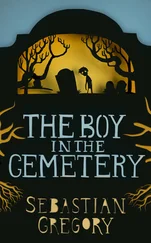He worked away at the traps for a while, and I stood near him, the night wind moaning a little where it crept along the buildings. There was a cold cheap cankered-looking moon risen, just sitting on the roof of the orphanage. My father was dousing the rats with paraffin, preparatory to throwing them on the fire one by one, a fire he had managed to get lit in the centre of the courtyard, using smelly old boards and the like from one of the stores. This was his own method of disposing of the rats, that he had devised, working on from the manual, and he was quite proud of the method. When I think back it was perhaps a little unfortunate that the rats were still alive going into the flames, but I do not think it ever struck my father as cruel, and maybe he hoped it might serve as a warning to other rats if they were watching from the shadows. Which would be to some degree how my father's mind worked.
At any rate he was opening the traps, grabbing the rats one by one as I said and now I think of it, giving each a rap over the head before the flames, that has just popped up in my head as a picture, thank God, and chatting away to me, and maybe it was because he was not able to give it his full concentration, because I was with him, but didn't one of the rats escape between the trap and the knock on the head, wriggling out of his fingers suddenly, skirting the astonished Bob, who had nary a chance to react, and was gone back towards the orphanage in a dark blaze of blackness, but with that characteristic galloping motion…Myfather cursed gently and maybe thought no more of it, thinking he would get that rat again the following day.
So he worked away at the remainder, registering no doubt the squeaking yelp that each rat gave as he dispatched it, soaked in the paraffin, and threw it onto the bonfire, a sound that I imagine he heard in his dreams. And after about an hour, he wrapped up his bits and bobs, slung his traps around his body, put Bob on his habitual string, and we passed back through the dark orphanage to the street side, where it presented a rather elaborate carved front to the town, being no doubt the result of much philanthropic cash in the vanished century of its building. It was when we were just crossing the street that we heard a roaring, and turned about and looked up.
There was a strange, full, mysterious sound coming from the building, high up on the floor where the girls were sleeping. Although not all sleeping now, because pushing up through the slates of the roof was a thick black smoke, and a grey smoke, and a white smoke, all eerily lit by nothing but the moon and the meagre illuminations of Sligo. Now we heard the glass of windows break somewhere, and suddenly a long thin arm of bright yellow flame came streaking out, seemed to hang solidly in the night air, showing up my father's upturned face, and no doubt mine, and then just as strangely retrieved itself, with a horrible roaring moan, worse than any wind. It seemed to me in my enormous fright that the fire had spoken a word: 'Death, death,' said the fire I thought.
'Jesus, Mary, and Joseph,' said my father, like a man paralysed by some awful turn in his blood and brain, and as he spoke the doors of the orphanage opened, no doubt sending up a wild fierce blow of wind through the house, and a few stunned girls, their pinnies covered in ash and dirt, came stumbling out, their faces wild like little demons. I had never seen such terror. Two or three of the attendants of the place, a woman and two men, also tumbled out, in their black clothes, and hurried out onto the cobbles to see what could be seen.
What could be seen – and now the fire engines could be heard in the distance, clanging their bells – was the floor of girls bright as day, with a foaming of flames behind the great windows, and though we were at a strict angle, the faces and arms of girls beating at the windows like moths do in daytime, or sleeping butterflies in winter when a room is suddenly heated, fatally thinking spring has come. Then some of the windows seemed to explode out, sending lethal shards and fragments of glass down towards us, making everyone run for the other side of the street. People came out of their houses, women with hands to their faces, wailing strangely, and men in their long johns from their beds, shouting and calling, and if they had never felt compassion for those parentless girls, they felt it now, calling out to them like fathers and mothers.
We could see the fire burn even fiercer behind them, offering an enormous flower of yellow and red, with such a noise as mortal never heard before hell, and indeed as hell might be thought to be in nightmares. And the girls, most of them my own age in that particular chamber, started to climb out through the windows onto the wide ledge, every one with their pinnies already burning, screaming and screaming. And when they could do no better, and had no hope of any other sort of rescue, they jumped from the ledge in little groups and single, their clothes burning and burning, the flames blown up from the pinnies till they dragged above them like veritable wings, and these burning girls fell the height of that grand old mansion, and struck the cobbles. A continuous wave of them, a wave of mere girls pouring abundantly from the windows, burning and screaming and dying before our eyes.
At the inquest which my father attended, a girl who survived offered an extraordinary explanation for the fire. She said she had been lying in her bed trying to sleep, facing the old fireplace where a little heap of coals lay smouldering, when she heard a scuffling and a squealing and a little miniature instance of mayhem. She went up on her elbows the better to see, and it was an animal she said, something thin and galloping like a rat, on fire, his fur burning with unusual venom, running about the room, and setting alight as he went the poor web-thin sheets that graced the girls' beds, falling in drapes to the bare floor. And before anyone knew what was happening, there were little fires burning in a hundred places, and the girl leaped up and called to her sister orphans and fled from the growing inferno.
When my father came home he told me this story, not lying beside me in the bed as was his usual practice, but sitting on the old stool by my bed, hunched forward. No one at the inquest could offer an explanation for the burning rat, and my father had said nothing. So bleak was his fate already he dared not say anything. One hundred and twenty-three girls had been killed, from the burning and the falling. He knew from experience, just as I knew from reading his manual, that rats liked to use the handy vertical highways of old chimney flues. A meagre little fire would be no hindrance. But if such a rat were to pass close enough to the fire and it drenched in paraffin, my father knew well the consequence.
Perhaps he should have spoken. I suppose I could have, betraying him like those children of Germans when Hitler asked them to sniff out the loyalty of their parents in that late war. But I never would have spoken.
Well, all speaking is difficult, whether peril attends it or not. Sometimes peril to the body, sometimes a more intimate, miniature, invisible peril to the soul. When to speak at all is a betrayal of something, perhaps a something not even identified, hiding inside the chambers of the body like a scared refugee in a site of war.
Which is to say, Dr Grene came back today, with his questions at the ready.
My husband Tom fished as a boy for ten years in Lough Gill for salmon. Most of that time, he stood by the lake, watching the dark waters. If he saw a salmon jumping, he went home. If you see a salmon, you will never catch one that day. But the art of not seeing a salmon is very dark too, you must stare and stare at the known sections where salmon are sometimes got, and imagine them down there, feel them there, sense them with some seventh sense. My husband Tom fished for ten years for salmon in that way. As a matter of record he never caught a salmon. So if you saw a salmon it seems you would not catch one, and if you did not see a salmon you would not catch one. So how would you catch one? By some third mystery of luck and instinct, that Tom did not have.
Читать дальше












